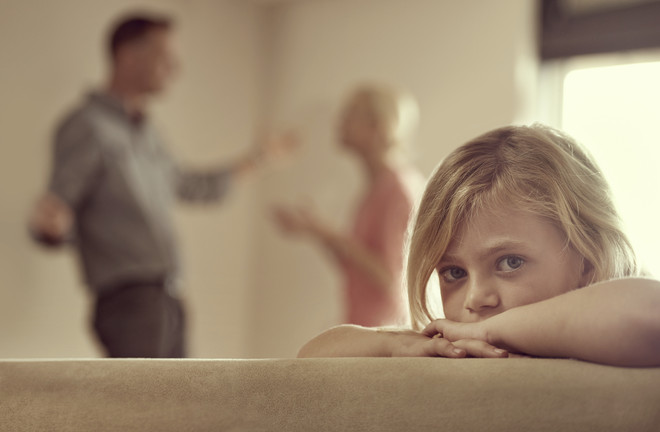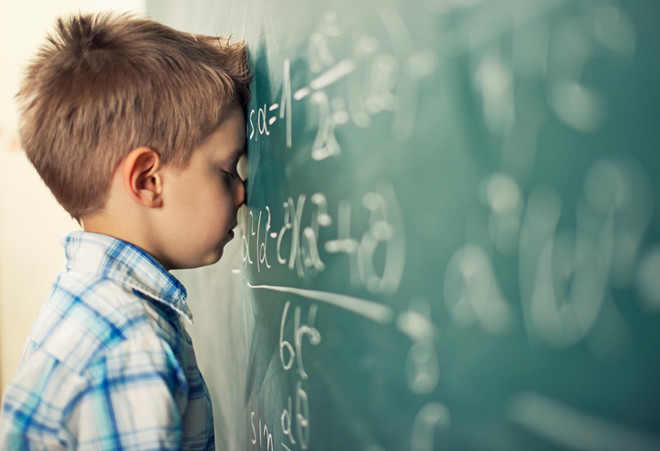Early childhood
 A photo: ThinkstockThe main stresses of early childhood: first illnesses, separation from mom, teething, first visits to doctors and meetings with new to the child people, attending kindergarten, changing the climate and time zone for long journeys. In such situations, the kid can show hyperactivity, sleep badly, refuse to eat, cry for no apparent reason, fuss or even behave aggressively. Doctors advise to be more attentive to changes in the behavior of the child and try to prevent such reactions. For this, it is necessary to monitor the sleep and wakefulness regime (the younger the child, the more prolonged rest is needed for him), it is important to maintain physical contact (hugs inspire the necessary sense of security), prepare in advance for the manger and kindergarten. If a restless sleep has already made itself felt, pay attention to breathing exercises, instead of watching TV play in quiet games or engage in applied creativity - this acts on the growing body soothingly, like meditation.
A photo: ThinkstockThe main stresses of early childhood: first illnesses, separation from mom, teething, first visits to doctors and meetings with new to the child people, attending kindergarten, changing the climate and time zone for long journeys. In such situations, the kid can show hyperactivity, sleep badly, refuse to eat, cry for no apparent reason, fuss or even behave aggressively. Doctors advise to be more attentive to changes in the behavior of the child and try to prevent such reactions. For this, it is necessary to monitor the sleep and wakefulness regime (the younger the child, the more prolonged rest is needed for him), it is important to maintain physical contact (hugs inspire the necessary sense of security), prepare in advance for the manger and kindergarten. If a restless sleep has already made itself felt, pay attention to breathing exercises, instead of watching TV play in quiet games or engage in applied creativity - this acts on the growing body soothingly, like meditation.
Junior school age
 A photo: Thinkstock At an early school age, the behavior pattern changes, as the child faces new challenges. Needless to say, the school completely changes the habitual way of life. The regime of the day becomes more rigid, communication with classmates and teachers is not always easy, bad assessments can not only spoil the mood, but also undermine faith in oneself. It is at this age that for the first time an informed analysis of what is happening around occurs. The main symptoms of stress can be rapid fatigue, memory impairment, mood swings, trouble concentrating, the appearance of bad habits (the child starts to nibble his nails, pens, biting his lips), isolation and isolation, frequent headaches, irritability. Make sure that your student falls asleep and wakes up at the same time, eats properly and regularly, does not neglect moderate exercise. Your control can play a very important role at this stage of growing up, but do not raise your voice if something goes wrong - excessive pressure will only provoke the opposite effect. In order for your advice to be heard by a son or daughter, there is only one means - communication. Gently talk about what excites the child, discuss possible problems and solutions.
A photo: Thinkstock At an early school age, the behavior pattern changes, as the child faces new challenges. Needless to say, the school completely changes the habitual way of life. The regime of the day becomes more rigid, communication with classmates and teachers is not always easy, bad assessments can not only spoil the mood, but also undermine faith in oneself. It is at this age that for the first time an informed analysis of what is happening around occurs. The main symptoms of stress can be rapid fatigue, memory impairment, mood swings, trouble concentrating, the appearance of bad habits (the child starts to nibble his nails, pens, biting his lips), isolation and isolation, frequent headaches, irritability. Make sure that your student falls asleep and wakes up at the same time, eats properly and regularly, does not neglect moderate exercise. Your control can play a very important role at this stage of growing up, but do not raise your voice if something goes wrong - excessive pressure will only provoke the opposite effect. In order for your advice to be heard by a son or daughter, there is only one means - communication. Gently talk about what excites the child, discuss possible problems and solutions.
Is it possible to “treat” stress?
An auxiliary tool in the fight against childhoodstress can be the homeopathic drug "Homeostres". Unlike analogues with valerian and calming teas, it does not reduce concentration, which is very important for schoolchildren. Instead, "Homeostres" gently normalizes sleep, giving the body the opportunity to restore its adaptive resources and "zero out" all the negative emotions left over from the past day. The natural medicine is based on a balanced complex of plant components, which allows you to specifically eliminate psycho-emotional and physical manifestations of anxiety. Adults and children from 3 years of age can take the non-addictive drug.










